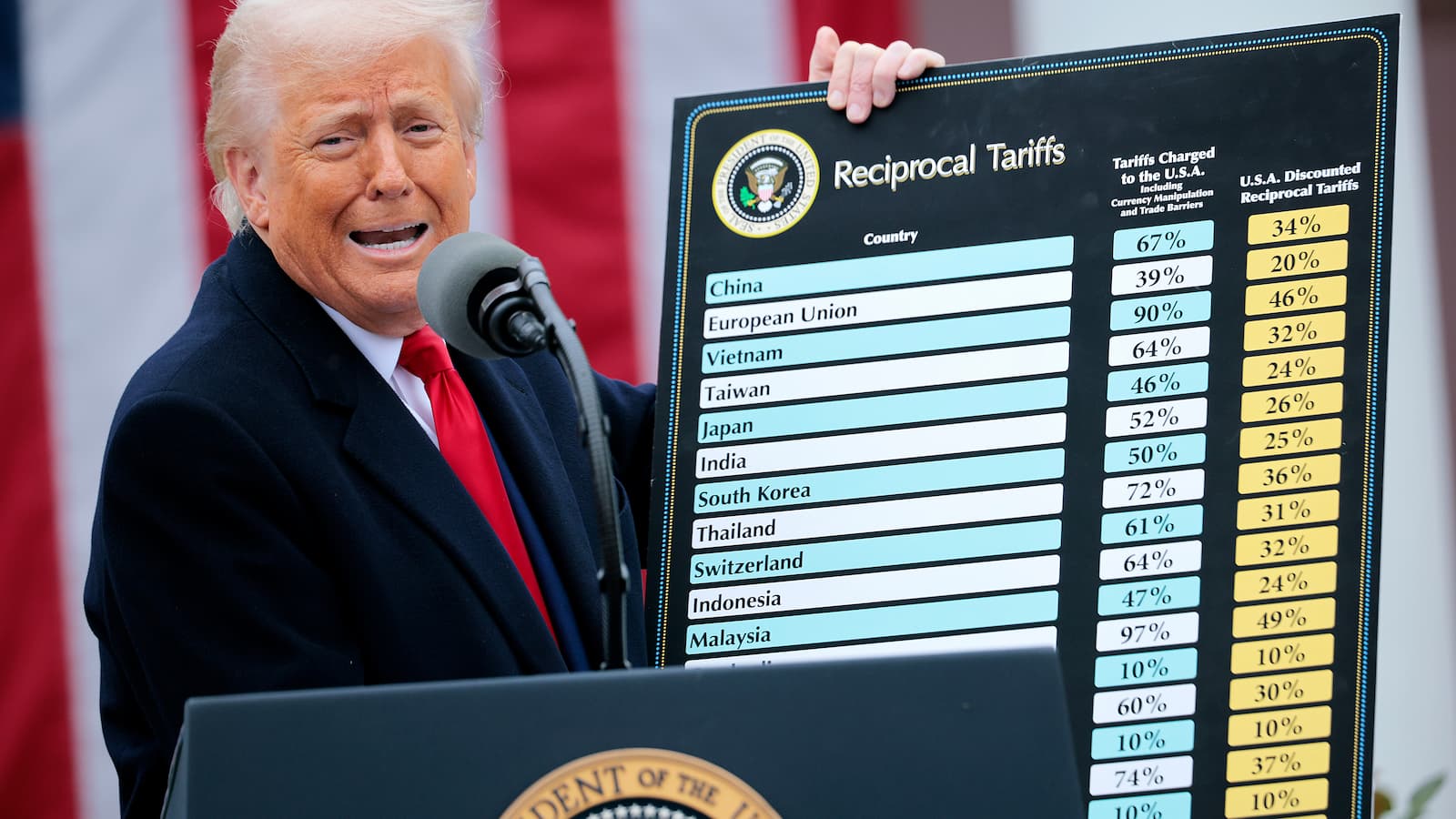Donald Trump’s new commerce tariffs are rippling by means of international vitality markets, and UK households may really feel the profit.
Based on MoneySavingExpert founder Martin Lewis, the “Trump impact” helps to drive down wholesale vitality costs, which implies a small drop in home payments is probably going this summer season.
The change comes within the wake of US President Donald Trump’s tariffs on imports, which have pulled down oil and gasoline costs, granting a reprieve for householders seeing vitality value rises.
The Trump impact defined

On the centre of this vitality value shift is President Trump’s newest coverage transfer: sweeping new tariffs on imports into the US.
Whereas aimed toward defending American producers, the knock-on impact has been a worldwide wave of financial uncertainty, and that’s affecting vitality costs.
“It was meant to be an financial disruptor. It has definitely been an financial disruptor,” Lewis mentioned, including that Trump’s tariffs have stoked fears of a US or international recession.
With recession fears come decrease predictions for demand, particularly for oil and gasoline. That has pushed wholesale costs down, which is the place the ‘Trump impact’ begins to filter into UK vitality payments.
Carry your dream house to life with skilled recommendation, learn how to guides and design inspiration. Join our e-newsletter and get two free tickets to a Homebuilding & Renovating Present close to you.
“The oil value has dropped. And the large one for setting UK gasoline and electrical energy costs is the gasoline value. And the gasoline value has dropped too,” Lewis defined.
Lewis predicts a 6-8% drop in value cap
Martin Lewis says UK vitality payments will fall barely this summer season, however not almost as a lot as individuals would possibly hope.
“Will the Trump impact imply your vitality payments within the UK get cheaper? The brief reply is: sure, however solely a bit of,” he mentioned. “Nothing to jot down house about.”
Lewis expects the July 2025 Vitality Value Cap to fall by round 6% to eight%, thanks partly to a steep drop in wholesale gasoline costs – down about 40% from their peak in February. Nevertheless, he defined that households received’t see financial savings on the identical scale, because of the manner the cap is calculated.
“The Value Cap is predicated on a time-lagged three-month common,” Lewis defined. “The info used runs from mid-February to mid-Might, so solely a part of the latest drop in costs might be included.”
He estimates that simply “one or two p.c” of the upcoming cap minimize is straight because of what he calls the “Trump impact” – tariffs which have weakened international vitality demand and pushed costs down.
Whereas that impression is actual, Lewis pressured it’s modest: “It’s barely sufficient to make up for the 6.4% rise individuals noticed in April.”
Can Trump trigger larger financial savings later?
Might continued financial slowdown within the US drive vitality costs even decrease? Probably. However the lagging nature of the UK’s vitality value system signifies that any huge financial savings would come slowly.
“If costs proceed to remain low, then it could be the October Value Cap and the next January Value Cap that may be decrease,” Lewis mentioned. However, he added, “That’s actually crystal ball gazing.”
In different phrases, whereas President Trump’s commerce coverage has unexpectedly cooled international vitality markets, UK prospects received’t profit a lot – a minimum of not instantly.
And Lewis had a last vitality saving tip for anybody getting too excited by graphs exhibiting vitality costs crashing: “It can deliver costs down, but it surely ain’t going to be bringing them down loads – not until one thing way more drastic occurs. Sorry to be the bearer of dangerous information.”


